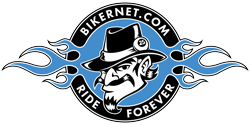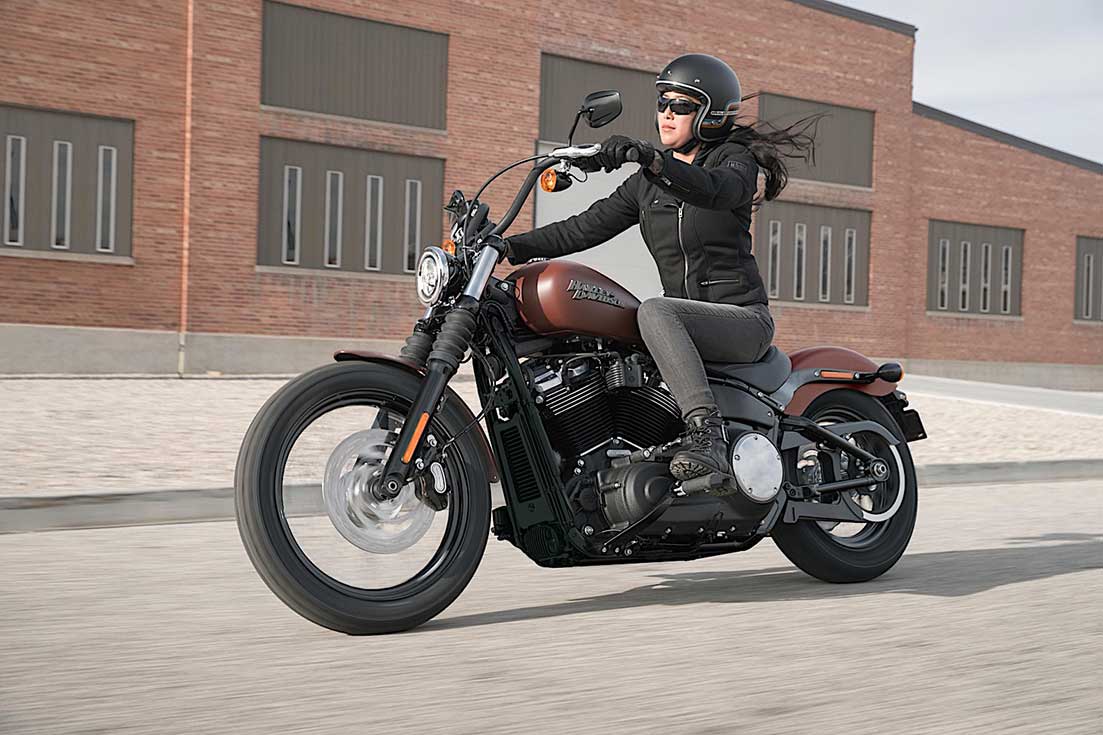Creation of Harley-Davidson Museum
By Wayfarer |
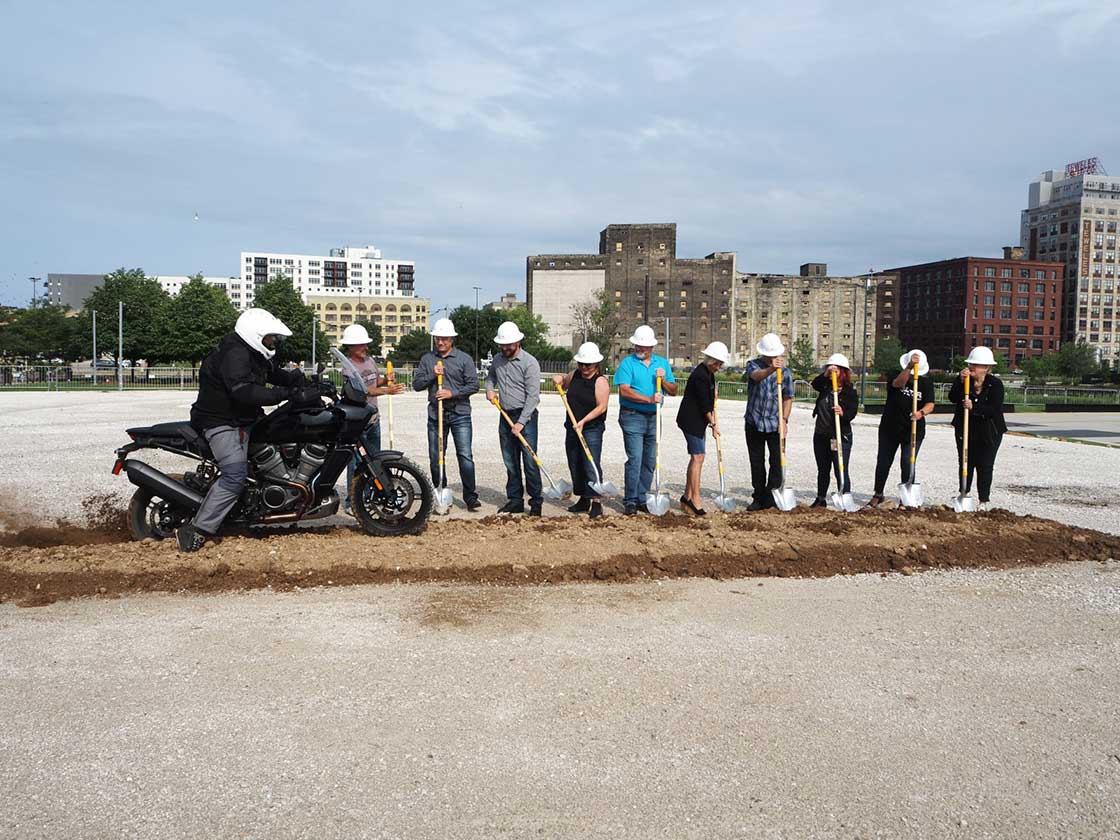
- Name of Property: Harley-Davidson Museum
- Address: 400 W. Canal St. Milwaukee. Also known as 126 N. 6th St.
- Assessed Valuation 2020: The 661,807-square-foot (15.93 acre) lot is assessed at $1,899,100 ($2.87/s.f.) and the 110,250 square foot improvements are valued at $10,120,600 for a total assessed valuation of $12,019,700. (In 2008 the land was assessed at the same amount, while the improvements were valued at $9,000,900 for a total of $10,900,000.)
- Taxes: 2020 Tax Bill $319,187.51. Payments current on the installment plan.
- Owner: HD MILW, LLC
- Type: Commercial
- Architect: HGA in collaboration with Pentagram Architects. Harley-Davidson Museum – HGA
- Year Built: 2007
- Neighborhood: Menomonee River Valley
- Subdivision: Walkers Point
- Aldermanic District: 12th, Jose G. Perez
- Walk Score: 61 out of 100 “Somewhat Walkable” Some errands can be accomplished on foot. Score would leap if pedestrian connection over canal to east were constructed. City average: 63 out of 100
- Transit Score: 69 out of 100 “Good Transit” Many nearby public transportation options. City average: 48 out of 100
- Bike Score: 78 out of 100; “Very Bikeable.” Biking is convenient for most trips. Plus, it is flat terrain, once you cross the 6th St. Viaduct. City average: 59 out of 100
- Bridgehunter 6th Street Viaduct https://bridgehunter.com/wi/milwaukee/bh36811/
- 1910 Map https://cdm17272.contentdm.oclc.org/digital/collection/san/id/855
- 1894 Map https://collections.lib.uwm.edu/digital/collection/san/id/241/rec/9
- Historic Photos of Site https://www.thevalleymke.org/history
Unique Hexagon Wheel Design on Custom Harley-Davidson Night Rod
By Wayfarer |
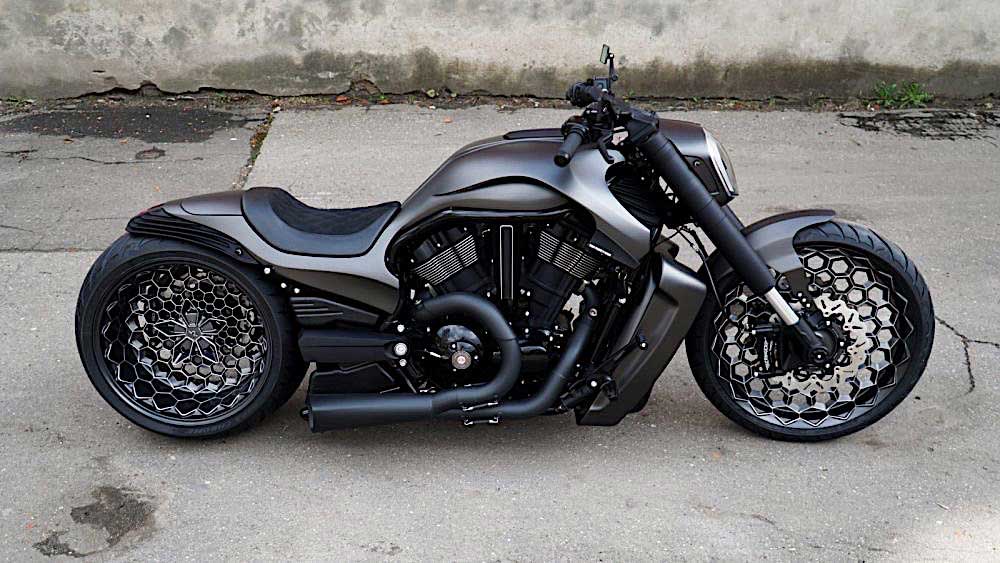
by Daniel Patrascu from https://www.autoevolution.com
If there is one element that can clearly make a custom motorcycle stand out in the crowd, than that element is the wheel. All it takes is a bit of imagination and some equipment to make a unique design, and you’re off to creating something no one else thought about before.
When setting out to customize a motorcycle, more specifically a Harley-Davidson, shops usually spend a lot of time and at times money in selecting the best wheel design for their project. The guys over at Russian shop Box39 are a good an example as any in this respect, as we’ve seen over the past few months.
Created about a decade ago, Box39 has a real thing for Harley’s V-Rods of not so long ago. In fact, the shop gave birth to an entire family of custom bikes based on that, called Giotto, which presently counts around 19 individual builds.
The one you’re looking at is called Giotto 7 and according to the Russians it has been completed in 2021. It was originally a Night Rod version of the American muscle bike, and it received the usual complement of changes to make it unique.
The most in-your-face elements of this apparition are of course the wheels, carefully crafted to display an uncountable number of small hexagons. The wheels are sized 21-inch front and 18-inch rear, the usual size combination when it comes to the Russians.
A custom paint job over the modified body of the bike make the wheels feel right at home in this design, especially when looking at the plastic body kit that was slapped onto the front end and fuel tank of the Milwaukee machine.
Box39 is not in the habit of telling people how much such a build costs to make, but looking at this thing, especially them wheels, we reckon it doesn’t come cheap.
See website: https://box39.ru/giotto-7/
Davinci DC100 Is a Two-Wheeled Robot Disguised as an Electric Motorcycle
By Wayfarer |
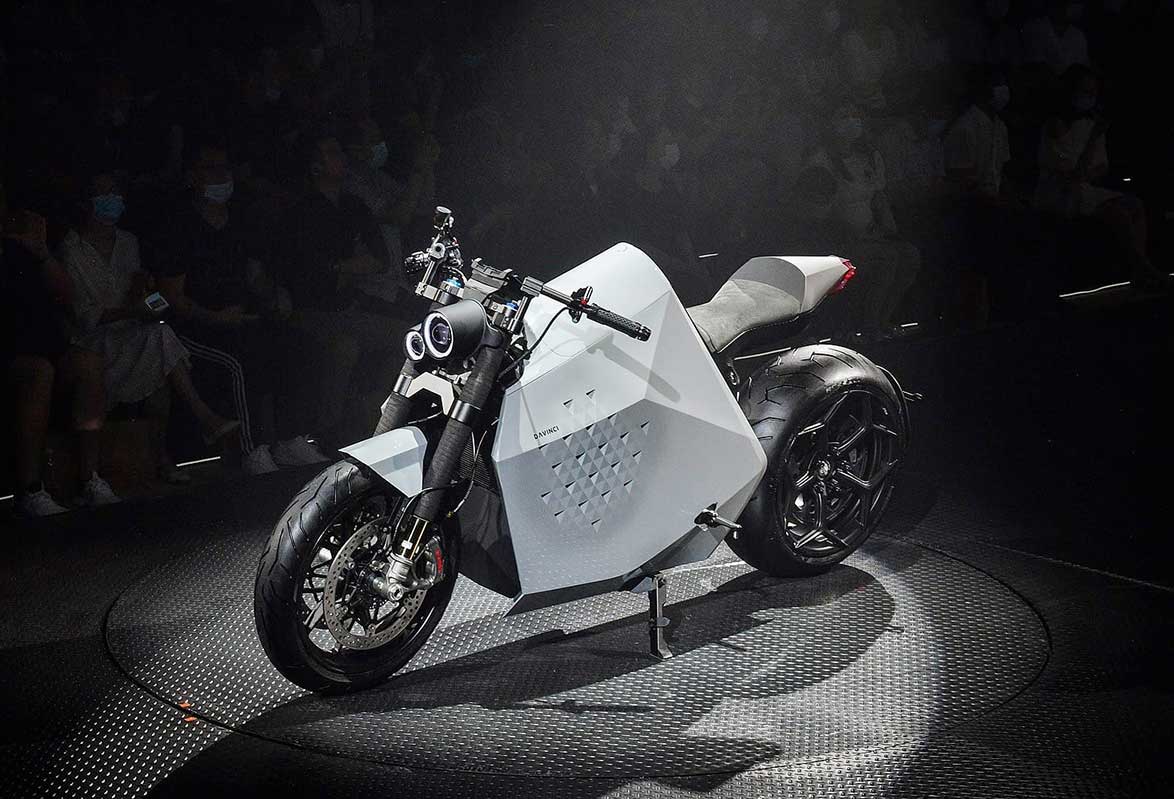
by Elena Gorgan from https://www.autoevolution.com
- 0 to 60 mph (100 kph) in 3 seconds
- top speed of 124 mph (200 km)
- peak power 135 hp and peak torque 627 ft-lb (850 Nm)
- ride range of 222 miles (357.51 km)
- fast-charging to full charge in 30 minutes
The motorcycle of tomorrow is, according to makers Davinci Dynamics, the DC100, or its fancier, more expensive version, the limited-edition, hand-crafted masterpiece DC Classic. Introduced this week in Beijing (hat tip to New Atlas), it is said to be the culmination of seven years of hard work, the first step toward the electric two-wheel revolution that the world has been hoping for but is yet to fully witness.
Big words for an equally big moment, but you don’t get the chance to stand out from everyone else if you don’t show cojones, figuratively speaking. Hopefully, Davinci Dynamics can back up the impressive claims with a futuristic cafe racer to match, because, on paper, the DC100 sounds like a dream. It’s more than just an electric motorcycle, the company says: it’s a two-wheeled robot disguised as an elegant, futuristic, electric cafe racer.
The DC100 rides on a monocoque aluminum alloy chassis. It has a single-sided swingarm and a cover for the giant lithium 17.7kWh battery pack that gives it a boxy but still streamlined appearance. It rides on Pirelli Diablo Rosso III tires, and it’s painted in muted gray or bright orange, making it feel as if it belongs in a video game of some sorts.
On paper, the DC100 delivers solid performance, meant to “rival the performance of their 1000cc gas-powered counterparts:” you get 0 to 60 mph (100kph) acceleration time of 3 seconds, peak torque of 627 ft-lb (850 Nm), and a top speed of 124 mph (200 kph). The hub motor delivers a peak power of 135 hp, while the battery is good for an estimated WLTP range of 222 miles (357.51 km). Fast-charging ensures a full charge in just 30 minutes.
The DC100 is also very smart, using technology for smoother and more intuitive, longer, and safer rides. It’s packed with sensors that collect and track information, says Davinci, with the ultimate goal of maximized efficiency and comfort, so you can truly enjoy your ride.
Features include Hill-start Assist Control (HAC), regen braking and improved balancing on descent, reverse assist (which allows you to back out of a spot on torque, even on an incline), traction control, and combined braking for maximized stopping power. In Drive mode, if you release the brake, the motorcycle “creeps forward slowly” at 3 mph (5 kph) to ensure a “smooth” start.
But the most intriguing features are listed as “to come:” self-balancing capabilities, target recognition, and remote control. Davinci promises that the DC100 “will be able to balance itself” and “to automatically follow a target,” hence the promise that it could become your “jogging companion.” The idea, one assumes, is that it won’t ever go any faster than in the creep mode mentioned above, at 3 mph (5 kph). Not that you should ever go out jogging with your bike, as if you’d have your dog tag along.
Remote control will also be offered as an OTA update, through the Davinci App. Though the press materials released so far show the bike with a display, the Davinci website and the press release that went out this week note that, even in this stage, your “phone is the key, and your display.” This means that riders have to use the Davinci App for settings and stats, and their phone to visualize them, including speed. They would also use this method for remote control, when and if it becomes available – maybe even to summon their bike to them in the way drivers do their Teslas today.
As noted above, Davinci is offering two models of this two-wheeled robot that poses as an electric motorcycle: the DC100 and the DC Classic. Spec-wise, the only difference between the two is that the latter will be limited to just 50 units worldwide and will come with a hand-crafted, hand-assembled and custom-tailored body that stands out for the “striking minimalist aesthetics,” each carrying an ID number.
The other, more significant difference is in pricing: the DC100 costs $27,500 / €26,000, while the DC Classic is $90,000/ €78,000. Assuming you picked yourself up from the floor, here’s the good news: the pre-order books are open, and all you need is a $150 / €150 deposit to secure your bike of tomorrow right now. That’s not a figure of speech, because the wait for either is long: the Classic ships in April 2022, and the DC100 in July 2022.
Over 100 motorcycles roll in to benefit Cleveland Clinic pediatrics
By Wayfarer |
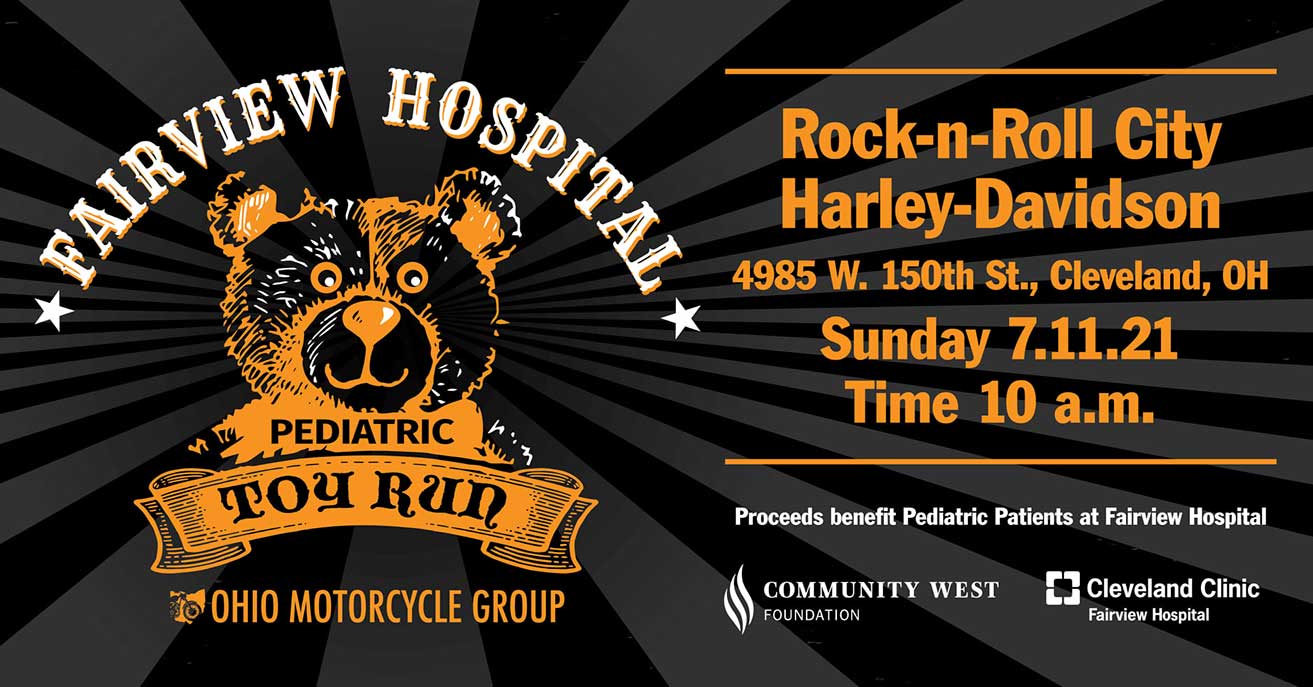
by Cris Belle from https://fox8.com
CLEVELAND (WJW) — Over 100 motorcycles rolled through town today to raise money and collect toys for the pediatric unit at Cleveland Clinic Fairview Hospital.
Riders arrived at the hospital around 1:30 p.m.
The Community West Foundation, Cleveland Clinic Fairview Hospital and Rock-In-Roll City Harley-Davidson held the event.
The mission of Community West Foundation is to advance the health and well-being of the community. The staff and Board of Directors are guided by the words in Matthew 25:35-40: “For I was hungry and you gave me something to eat, I was thirsty and you gave me something to drink, I was a stranger and you invited me in, I needed clothes and you clothed me, I was sick and you looked after me, I was in prison and you came to visit me… Truly I tell you, whatever you did for one of the least of these brothers and sisters of mine, you did for me.”
Many police departments were there as well to support the event: Beachwood police, Fairview Park police, Cleveland police, Bratenhal police, Cuyahoga County Sheriffs Department, Lorain County Sheriffs Department and Rocky River police.
For more information, contact Community West Foundation at 440-360-7370 or click here.
JetPack Aviation Completes First Test for Speeder “Flying Motorcycle” Platform
By Wayfarer |

by Cristian Curmei from https://www.autoevolution.com
If you’ve had any doubt that flying cars and motorcycles would become a reality in your lifetime, take the Speeder from Jetpack Aviation as a welcoming example to break your doubts. Better yet, preorders are open for just 20 pieces.
Here’s what we know. Recently, JetPack Aviation (JPA) successfully completed the first test flight on a full-scale P1.0 hovercraft. Why is this a big deal? Well, simply put, the P1.0 is the base construction for the company’s future product, the Speeder, which will be set up on the now-in-construction P1.5 platform.
For over ten years, JPA has been focused on creating micro-VTOLs aimed at human and AI-operated flight. Based in the San Fernando Valley, just north of Los Angeles, California, this team is currently at the forefront of bringing the world the first fully operable personal VTOL, or as some folks call it, “a flying motorcycle.”
Now, the test was a tethered flight, but, during operations, you can see that the tether is mostly there in case of engine failure. Even the swaying that occurs at one point is all desired. Since that video shows just the frame of the Speeder, I’ve also introduced a video that shows where JPA wants to take the Speeder.
What this successful test means for this company is a whole lot. Mainly, it means that there something to show investors. With this trial, JPA is now at sparkling like a diamond in a coal mine with what seems to be a whole lot of clarity. So much in that the company has officially opened up preorders on the first 20 Speeders. However, they’ve probably all been sold by now, even though they’re running for a $380,000 (€322,713 at current exchange rates) base price for just the recreational version. Yes, there’s more than one version, three in total, and each for a designed purpose.
If you have any doubts about this company’s ability to get things off the ground (get it? “off the ground”), then take the army’s interest in this sort of tech as a clear example of what JPA has in mind. This team even has a version of the Speeder that’s aimed at supporting troops and first responders. But before I get into that, let me outline what a Speeder will be able to do.
First, the Recreational Speeder will come in with an empty weight of just 231 lbs (105 kg) and offers a max thrust of 705 lbs (320 kg). This is enough to blast the Speeder up to speed of 150 mph (241 kph). Imagine going to your local grocery store on one of these; probably won’t happen for a year or so. Not until we have landing pads instead of parking lots. However, a ride to the local store is all you’ll be able to do as an endurance time of 22 minutes max is all you get. Yeah, but those are going to be some amazing 22 minutes.
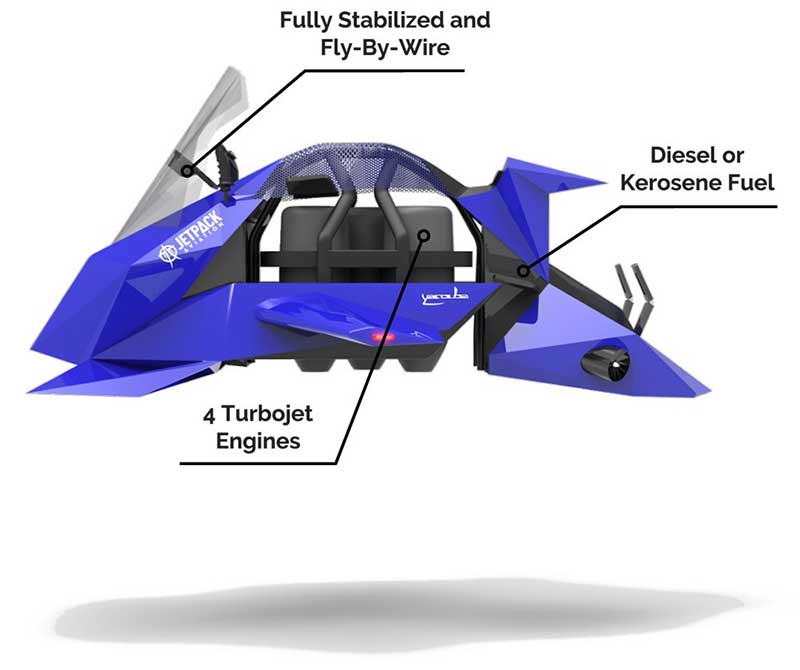
Versions two and three include the Military Speeder and Cargo Speeder. Now, this version of the Speeder is much stronger. Here, 1,200 lbs (544 kg) of thrust are available, and the 22-minute flight time has been extended to 30 minutes. Up until this point in my life I never wanted to join the army. If I can fly one of these, sign me up!
This same Speeder is to be used by first responders as well, just painted a bit different and slightly different utilities. This version, as well as the one used by military, will include a carrying cases that can be mounted to an existing Speeder and carry supplies needed for first aid, even be set up as a first-response station. The military will be stocking theirs cases with weapons and equipment used in missions. For Speeders that employ a cargo case, autonomous flight will be used.
One feature that set the Speeder apart from other similar vehicles is the thrust system. Instead of using rotors to fly, this VTOL will be powered by four compact turbojet engines that operate on kerosene, Jet A fuel, and diesel. Why? These sorts of engines offer pinpoint accuracy when operable. Just look at the size of the landing pad this team is using for the test.
Ok. So, I’m going to do my absolute best to try and get a test ride on one of these Speeders. And when I do, you’ll be sure to catch a video of it too. However, until that day arrives, JetPack Aviation will be giving it all it’s got to make these puppies happen. With this successful completed test, they kind of already are.
NCOM Biker Newsbytes for July 2021
By Wayfarer |
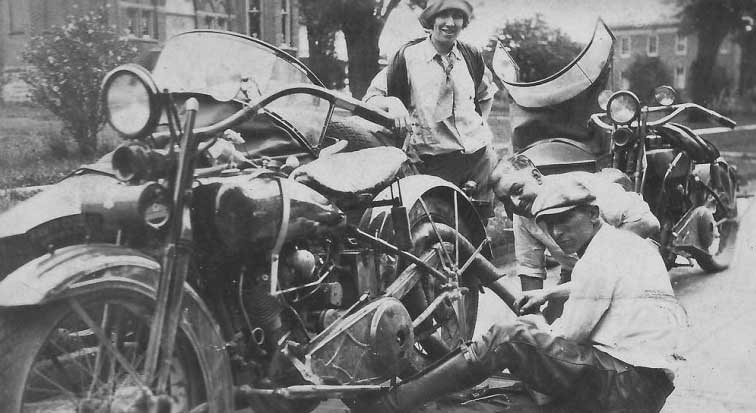
Highway Bill passes House, Right to Repair moves ahead, Motorcycle Industry Council program, Emission free motorcycles in UK and more nations to phase out new gas engine motorcycles, EU & US truce on Trade Tariffs, Mandatory Motorcycle Inspections for Europe, Easyriders magazine to come back.
E-news service from National Coalition of Motorcyclists
Click Here to Read the NCOM motorcycle industry news on Bikernet.com
Join the Cantina for more – Subscribe Today.
https://www.bikernet.com/pages/custom/subscription.aspx
Idaho Patriot Thunder Ride for 2021 this Weekend
By Wayfarer |
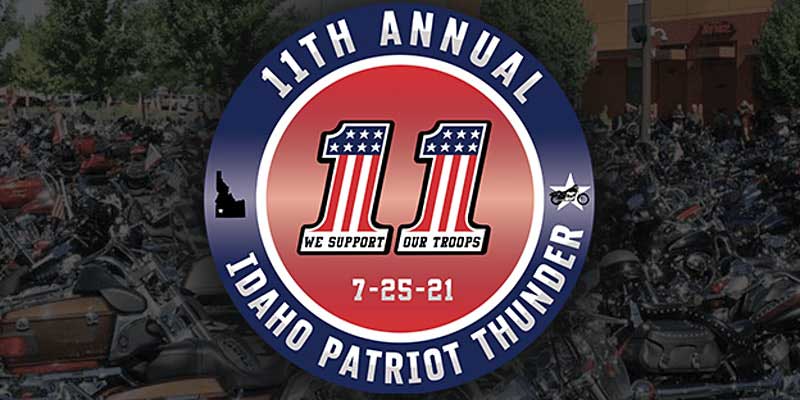
by Nate Bird from https://newsradio1310.com
I can’t be the only one who does this, but every time a group of motorcycles drives by me when I’m driving I will roll down the window so I can hear each of them zip past me. I don’t ride motorcycles but I love the sound they make. This weekend there will be a whole bunch of opportunities to hear bikes as they fly by when the Idaho Patriot Thunder Ride happens this Sunday in I-84 between Meridian and Mountain Home.
What Is The Idaho Patriot Thunder Ride?
The Idaho Patriot Thunder Ride is an annual motorcycle ride organized by the High Desert Harley-Davidson. The motorcycle ride raises money for the Idaho Guard and Reserve, Family Support Fund, and the Operation Warmheart. This year will be the 11th annual event after taking a break last year due to the pandemic.
When Is The 2021 Idaho Patriot Thunder Ride?
The Idaho Patriot Thunder Ride for 2021 will happen on Sunday July 25th. The event starts at 8 AM and is expected to last until 5 PM. Participants in the Ride will meet at High Desert Harley-Davidson for sign in and breakfast. The group will then be led on a police escorted ride from the Harley dealership to Carl Miller Park in Mountain Home. The ride is about 55 miles each way and runs down I-84.
For those not participating, you can expect there to be delays as the bikes travel down the highway. If you’re going to be in that area it will be a nice opportunity to roll down your windows and listen to the thunder of the bikes as they drive by.
How Do You Sign Up For The 11th Annual Idaho Patriot Thunder Ride?
Registration Website https://www.eventbrite.com/e/11th-annual-idaho-patriot-thunder-ride-tickets-111370235372
Registration can be done in advance online for $25 per rider or at the event for $35. A select number of VIP tickets are being sold as well for $100 and those get you placed at the front of the pack during the ride. The event is only open to 1,200 motorcycles.
Get all the details on the event on the ticket purchase website. We may not see, or hear, much from the event in Twin Falls but if Boise travel is in your plans on Sunday morning or afternoon you can expect to see lots of motorcycles and probably some driving delays.
Pre-Owned Harley-Davidsons Get New Home on Company’s Website
By Wayfarer |
The H-D website has the new brand announcement at https://www.harley-davidson.com/us/en/marketplace.html
by Daniel Patrascu from https://www.autoevolution.com
If you’re in the market for a pre-owned Harley-Davidson, then you have a major problem: there are to many places to look for one, and that can make the search a bit disconcerting. Now, in a bid to make things easier, Harley-Davidson itself may end up complicating things some more with the launch of its own dedicated marketplace.
Called H-D1, the virtual showroom will host both certified pre-owned (Harley got into this game this April) and other used bikes wearing the Milwaukee company’s logos.
The company promises “the most comprehensive opportunity to search, experience, sell and purchase pre-owned Harley-Davidson motorcycles across North America. “
The service will first be available to buyers and sellers in the United States and will include the “entire selection of pre-owned Harley-Davidson motorcycles from our participating dealer network, that will be available for our customers to browse and customize online.”
As announced back in April, to be eligible for the certified pre-owned motorcycle program a bike has to be no more than five model years old, read less than 25,000 miles (40,200 km) on the odometer, and come with no aftermarket modifications to the engine, transmission, chassis, or electrical system.
All bikes sold through this program are subjected to a “110-point quality-assurance inspection,” and recalls or a blocked VIN status verification.
When sold, bikes will go with a one-year warranty (with a $50 deductible charge per claim) for the engine and transmission, and a free one-year membership in the Harley Owners Group (HOG).
Remember though, if certified is not your thing, the new marketplace is where you’ll find all sorts of crazy Harley’s available in your area.
Harley hints it plans on expanding the H-D1 Marketplace to more markets soon, looking to transform its website into the main hub for all things Milwaukee. We’re not being told, for now, what’s next on this front.
Custom Harley-Davidson a Mesh of Parts with Old School Look
By Wayfarer |
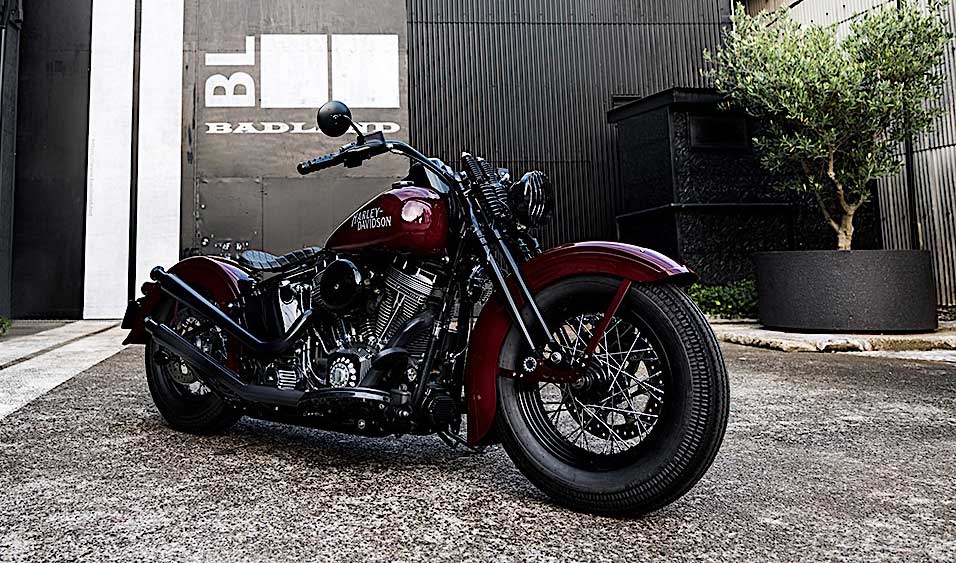
by Daniel Patrascu from https://www.autoevolution.com
Fancy a modern Harley-Davidson with old-school looks? Look no further than this customized two-wheeler, coming to our screens all the way from Japan.
What you’re looking at was initially a 2017 Softail. It somehow got into the hands and workshop of Japanese custom specialist Bad Land, and got turned into this amazing, old school look and feel motorcycle, christened by its maker Shishigaya Style No. 1.
2017 TwinCam Softail Slim BL Shishigaya Style Custom Specs
- Front & Rear Wheel : OEM
- 74″ Old Springer Fork STD. Length : W&W Cycles
- 74″ Old Springer Fork : Rocker arm / Modify by BAD LAND
- Front Fender : W&W Cycles / Modify by BAD LAND
- Headlight : OEM
- Headlight Grill : Rough Crafts
- Handlebar : W&W Cycles / Modify by BAD LAND
- Gasolie Tank : OEM / Modify by BAD LAND
- Front Fender : W&W Cycles / Modify by BAD LAND
- Rocker Cover : Ken’s Factory
- Cam Cover : Ken’s Factory
- T/M Side Cover : Ken’s Factory
- Exhaust : PAUGHCO / BAD LAND in One-Off
- Air Cleaner Cover : OEM / Modify by BAD LAND
- Paint : Naturally Paint
- And More…
Like with pretty much all other builds signed by Bad Land, this one too is a remarkable collection of custom parts coming from a variety of shops, and made to fit together in an amazing and elegant way.
Sitting inside the frame to power the beast is a Screamin’ Eagle 110 monster of an engine that breaths through a Paughco exhaust system. The engine spins OEM front and rear wheels, and gets its fuel from an equally OEM tank, massaged into a different form by Bad Land.
Also original equipments are the headlight and air cleaner (it too modified), but that’s about it, the rest is aftermarket. The fork comes from W&W Cycles, which also supplies the large front fender and handlebar, both tinkered with by the builder. The various covers that went into the project have been sourced from Ken’s Factory, and the grill behind which the headlight sits is signed by Rough Crafts.
The bike was completed last year, but we are not being told how much it took the Japanese to put this thing together, or how much it cost to make. You can however get a taste of how work on it looked like in the attached gallery, which shows both the finished product, and some work-in-progress shots.
You can find the full details on the build, one of the coolest from the Japanese shop we’ve featured so far, by Clicking Here.
Ducati Panigale V2 Bayliss 1st Championship 20th Anniversary Honors a Legend
By Wayfarer |
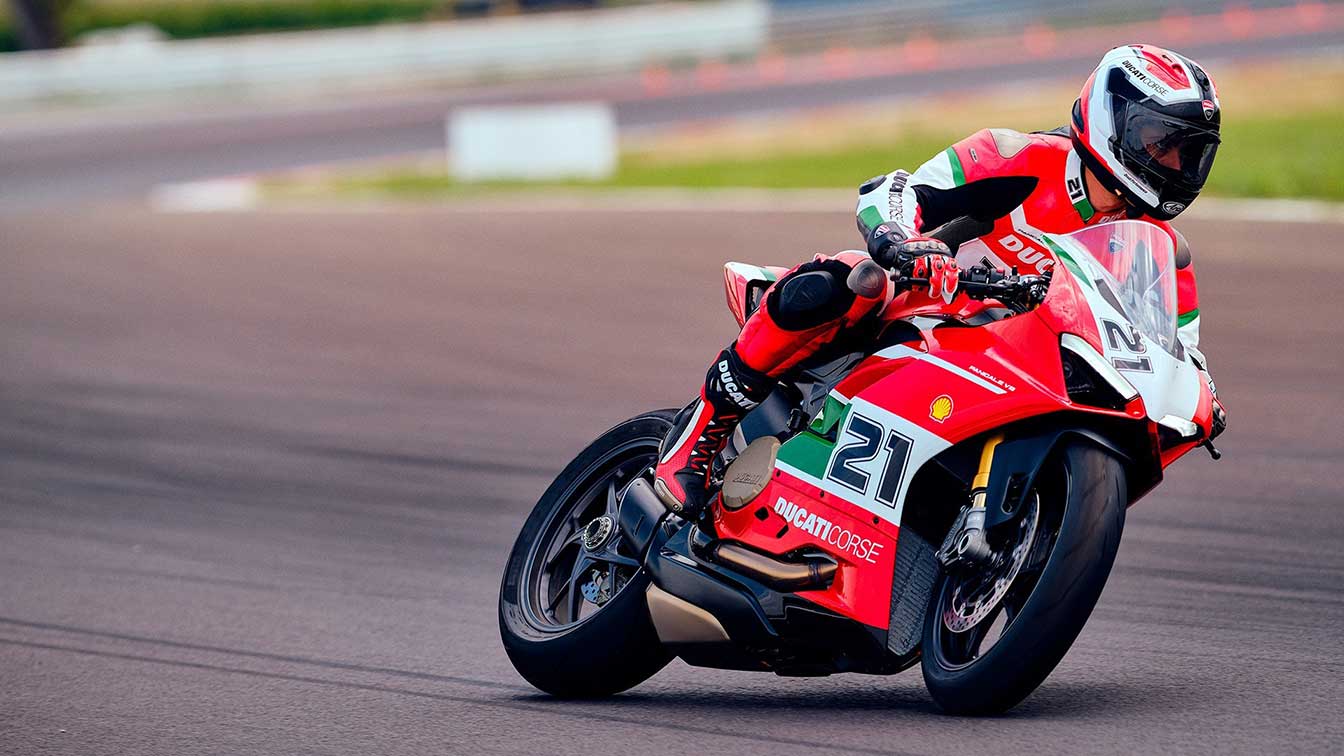
by Sebastian Toma from https://www.autoevolution.com
Ducati is celebrating 20 years since Troy Bayliss won his first World Superbike championship. A special edition of the Panigale V2 has been made, and it comes with several goodies on top of the regular model. It had to be painted red, and Bayliss’s race number is also on the special edition Panigale, which also features graphics inspired by the 2001 championship-winning bike.
The special edition of the Panigale V2 ditches the stock Showa and Sachs suspension system in favor of an Öhlins kit. The front is taken care of with the NX30 fork, while the rear is kept under control with the TTX36. Öhlins’ influence on this bike does not end here, as the Swedes also make the steering damper. Right next to that part, on the triple clamps, one can observe the production number of each bike.
For maximum weight reduction, the special-edition Ducati Panigale V2 1st Championship 20th Anniversary comes with a lithium-ion battery, as well as a single-seater configuration. The saddle is sewn with contrasting red stitching, and the craftspeople at Ducati also embroidered Bayliss’ race number, 21, along with the Italian flag.
Thanks to the lightweight components, the bike lost about three kilos (6,6 lbs.), adding up to 174.5 kilograms (385 lbs.) Seat height is 835 mm (32,9 inches), which may be tall for some, but being tall enough is just one of the things one must consider before buying a motorcycle in this segment.
Ducati fans will also remark a set of sport grips, a titanium and carbon fiber exhaust system, and Troy Bayliss’ autograph on the fuel tank. The latter also reminds us of each of the three years when Bayliss won the championship title.
The extras with the special edition of the Panigale V2 end here, but future owners will still have a great bike to ride. Ducati’s Panigale V2 comes with slide control, wheelie control, ABS, traction control, and various other systems to help keep the rider with both wheels on the road.
The red Italian super sport bike comes with a 995 cubic-centimeter V-twin engine called the Superquadro, with four valves per cylinder and the famous Desmodromic valves. The unit can provide 155 HP at 10.750 rpm and a maximum torque of 104 Nm (76.7 lb-ft) at 9.000 rpm. The famous Ducati V2 sound is standard.
For those of you who do not know who Troy Bayliss is, you should know that he is one of the most loved motorcycle racers of our time. He managed to get the World SuperBike Championship title three times in his career, in 2001, 2006, and 2008. To this day, Troy Bayliss is the first rider to have won a Moto GP and WSBK race in the same season.
